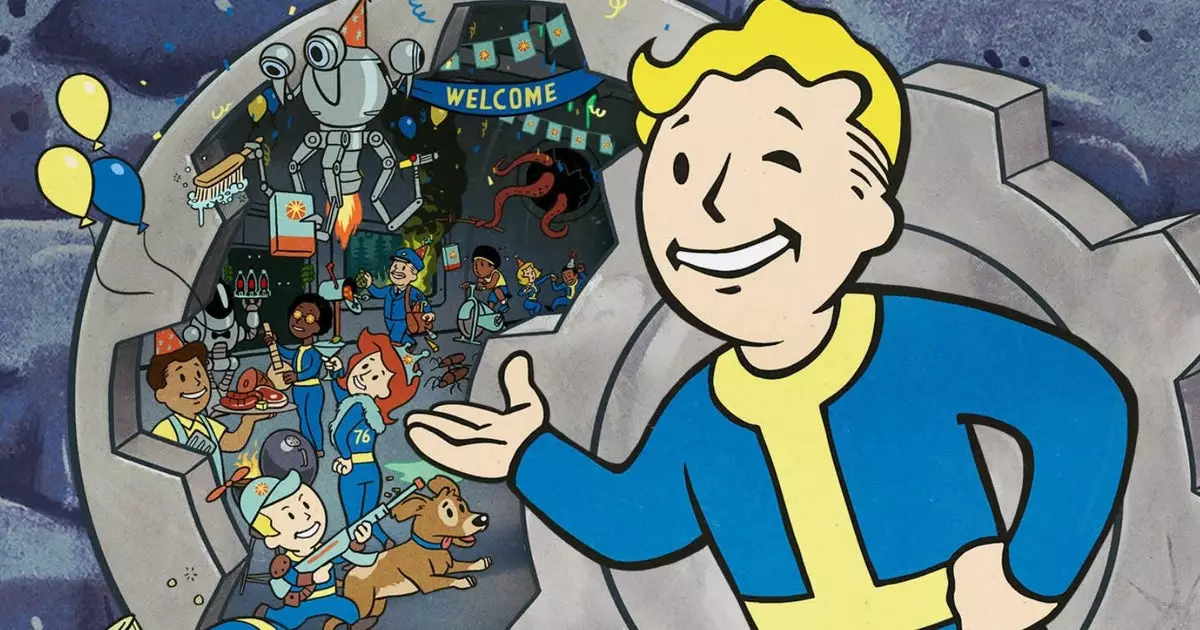The gaming industry, once considered a carefree realm of creativity, is witnessing a seismic shift as labor dynamics undergo radical transformation. At the forefront of this revolution is ZeniMax Workers United, a union representing approximately 300 employees from ZeniMax Media—the publishing powerhouse behind iconic franchises such as Elder Scrolls, Doom, and Fallout. Their recent vote to authorize strike action if negotiations with Microsoft, their parent company, fall short emphasizes the growing collective resolve among game developers to demand better wages and improved work conditions. This isn’t just a tale of salary disputes; it’s a manifesto for fair treatment and respect in an industry ripe with opportunity yet fraught with challenges.
A Prolonged Negotiation Saga
The workers at ZeniMax Media have found themselves in a protracted negotiation process lasting nearly two years. With concerns ranging from remote work options to the outsourcing of game testing, the need for action has become increasingly palpable. The union’s establishment in December 2023 signifies a broader desire for collective bargaining power in a market that frequently overlooks the needs of its most valuable asset—its developers. Despite Microsoft recognizing the union, skepticism looms large regarding the sincerity of their support; a prior neutrality agreement signed with the Communication Workers of America (CWA) raises questions about whether the engagement is genuine or simply a strategic maneuver.
In an era where remote work has transitioned from a luxury to a necessity, the insistence on in-office requirements—coined Return to Office (RTO) policies—has further escalated tensions. Last year, discontent prompted workers to engage in a one-day strike, an uncommon yet powerful demonstration of their frustration. It became apparent that mere recognition of the union doesn’t equate to meaningful dialogue; it’s essential that Microsoft embraces their responsibility to engage with their workforce on these crucial issues.
Voices from the Ground: Real Stories of Struggle
Statements from ZeniMax employees illuminate the human side of this conflict. Senior QA tester Zachary Armstrong conveyed the harsh reality faced by many—“Underpayment and costly RTO initiatives have caused many of us to put our lives on pause.” These words starkly encapsulate a larger societal issue: the harsh cost of living in urban centers often outpaces salaries, forcing employees to make difficult life decisions that no one should have to contemplate. With over 94% of union members signaling their willingness to strike if negotiations falter, there’s an unmistakable determination to reclaim their narrative.
Associate QA tester Aubrey Litchfield’s comments further echo this sentiment. “Despite being one of the world’s largest corporations, we’ve had to continuously fight for what should be bare minimum,” she stated. Herein lies an essential criticism of corporate responsibility: it is unreasonable for a multi-trillion-dollar company to shortchange its talent base when employee welfare is fundamental to sustainable success. The disconnect between corporate prestige and employee experience raises serious questions about the priorities of companies that claim to be responsible leaders in the tech space.
Threats of AI and Job Security
Moreover, the debate over workplace conditions is further complicated by the looming threat of generative AI encroaching into creative spaces traditionally occupied by human developers. With Microsoft investing heavily in AI technology, many workers are left wondering about job security amidst technological advancement. The juxtaposition of layoffs occurring alongside massive investments in AI casts a long shadow over the workforce, amplifying feelings of anxiety and uncertainty. This sense of vulnerability adds another layer of complexity to ongoing negotiations; it is not just about wages anymore but the future of work in an industry on the brink of transformation.
As gaming companies navigate this turbulent landscape, it becomes crucial for them to recognize and address the needs of their employees. The current climate dispels the myth that creativity and profitability can exist in a vacuum detached from fair labor practices. As unions gain momentum, companies must adapt their policies to foster an environment where creative professionals can thrive, ensuring their contributions are both acknowledged and compensated appropriately.
The ongoing struggle at ZeniMax Media is emblematic of a larger movement within the industry, as workers across various companies seek to redefine the future of work in video gaming. Their fight is not merely for better contracts; it’s a call for dignity, fairness, and acknowledgment of the indispensable role they play in creating the entertainment that millions enjoy worldwide. What will it take for corporations to finally listen?

